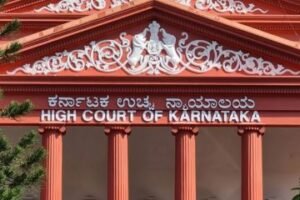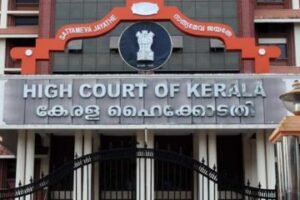Orders Framing Charges Or Refusing Discharge Neither Interlocutory Nor Final; Not Affected By Bar U/Sec 397 (2) CrPC
Case: Sanjay Kumar Rai Vs. State of Uttar Pradesh
Coram: CJI NV Ramana, Justices Surya Kant and Aniruddha Bose
Case No: [CrA 472 OF 2021]
Court Observation: “It appears to us that while limiting the scope of a criminal revision to jurisdictional errors alone, the High Court apparently underappreciated the Judgment in Asian Resurfacing (supra). We say so at least for two reasons. First, 9 the material facts in the abovecited case dealt with a challenge to the charges framed under the Prevention of Corruption Act, 1988 (“POCA”). The cited judgment itself enlightens that not only is POCA special legislation, but also contains a specific bar under Section 19 against the routine exercise of revisional jurisdiction. Second, This Court in Asian Resurfacing (Supra) while expressing concern regarding the need to tackle rampant pendency and delays in our criminal law system, followed the ratio laid down in an earlier decision in Madhu Limaye v. the State of Maharashtra,”
“The correct position of law as laid down in Madhu Limaye (supra), thus, is that orders framing charges or refusing discharge are neither interlocutory nor final in nature and are therefore not affected by the bar of Section 397 (2) of CrPC. That apart, this Court in the abovecited cases has unequivocally acknowledged that the High Court is imbued with inherent jurisdiction to prevent abuse of process or to secure ends of justice having regard to the facts and circumstance of individual cases. As a caveat, it may be stated that the High Court, while exercising its aforestated jurisdiction ought to be circumspect.
The discretion vested in the High Court is to be invoked carefully and judiciously for effective and timely administration of the criminal justice system. This Court, nonetheless, does not recommend a completely hands-off approach. Albeit, there should be interference, maybe, in exceptional cases, failing which there is the likelihood of serious prejudice to the rights of a citizen. For example, when the contents of a complaint or the other purported material on record is a brazen attempt to persecute a 12 innocent person, it becomes imperative upon the Court to prevent the abuse of process of law.”
“The Court has to sift through the evidence in order to find out whether there are sufficient grounds to try the suspect. The court has to consider the broad probabilities, the total effect of evidence and documents produced and the basic infirmities appearing in the case, and so on. [Union of India v. Prafulla Kumar Samal ]. Likewise, the Court has sufficient discretion to order a further investigation in appropriate cases, if need be.”
[doc id=5066]
Previous Posts
Authorities Under Disaster Management Act Have No Power To Alter Fee Structure Of Private Schools Download Judgement




